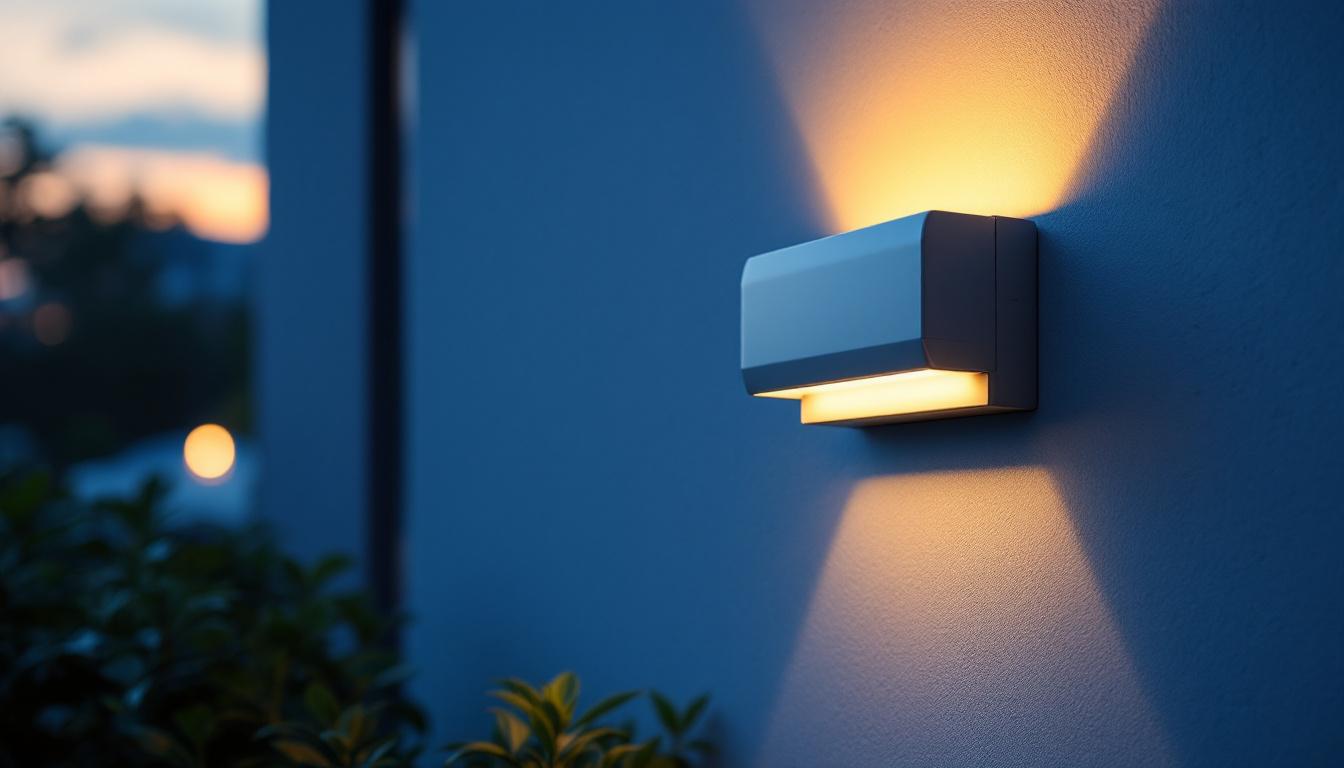
As the demand for sustainable and energy-efficient solutions grows, outside solar lights have emerged as a popular choice for residential and commercial landscaping. For lighting contractors, understanding the pros and cons of solar lighting is essential for making informed recommendations to clients. This article delves into the various aspects of outside solar lights, providing insights that can help lighting professionals navigate this evolving landscape.
Solar lights operate by harnessing sunlight through photovoltaic cells, converting it into electricity that powers LED bulbs. This technology has advanced significantly, resulting in more efficient and reliable solar lighting options. However, it is crucial for lighting contractors to grasp the underlying mechanics of solar lights to effectively communicate their benefits and limitations to clients.
Typically, solar lights consist of several key components: the solar panel, battery, LED light, and sensor. The solar panel absorbs sunlight during the day, charging the battery, which stores energy for nighttime use. The LED light provides illumination, while the sensor detects ambient light levels, turning the lights on and off automatically.
Understanding these components helps contractors assess the quality and performance of different solar lighting products. For instance, the efficiency of the solar panel and the capacity of the battery can significantly impact the light’s performance, particularly in areas with limited sunlight. Additionally, the choice of LED technology plays a pivotal role; newer models may utilize advanced optics to enhance light distribution, ensuring that the illumination is both effective and aesthetically pleasing. Furthermore, the durability of materials used in construction, such as weather-resistant casings, can influence the longevity and reliability of solar lights in various environmental conditions.
There are various types of solar lights available on the market, including path lights, flood lights, wall-mounted lights, and decorative options. Each type serves a different purpose and can be used to enhance the aesthetic appeal and safety of outdoor spaces.
Lighting contractors should familiarize themselves with these options to provide tailored solutions that meet the specific needs of their clients. For example, path lights are ideal for illuminating walkways, while flood lights can enhance security around a property. Additionally, decorative solar lights, such as string lights or lanterns, can add a charming ambiance to gardens and patios, making outdoor spaces more inviting for gatherings. It’s also worth noting that some solar lights come equipped with smart technology, allowing for features like remote control and scheduling, which can further enhance their functionality and appeal to tech-savvy homeowners. As the demand for sustainable and energy-efficient solutions grows, understanding the diverse applications of solar lighting will empower contractors to offer innovative and effective solutions to their clients.
Solar lights offer numerous advantages that can appeal to both contractors and clients. Understanding these benefits can help contractors advocate for solar lighting solutions effectively.
One of the most significant advantages of solar lights is their energy efficiency. Since they rely on sunlight, they do not contribute to electricity bills, making them a cost-effective option in the long run. This aspect is particularly appealing to clients looking to reduce their energy consumption and overall expenses.
Moreover, the initial investment in solar lighting can often be recouped through savings on energy costs, making them an attractive option for budget-conscious clients. Contractors can highlight this financial benefit when discussing solar lighting options with potential customers. Additionally, many solar lights come equipped with LED technology, which not only enhances their efficiency but also extends their lifespan significantly compared to traditional bulbs. This combination of savings and longevity can be a compelling argument for clients considering a switch to solar lighting.
In an era where sustainability is paramount, solar lights present an eco-friendly alternative to traditional lighting solutions. By utilizing renewable energy, solar lights help reduce carbon footprints and lessen dependence on fossil fuels.
Contractors can leverage this environmental advantage to attract clients who prioritize sustainability in their purchasing decisions. Promoting solar lights as a green solution not only enhances a contractor’s reputation but also aligns with the growing trend of environmentally conscious consumerism. Furthermore, solar lights contribute to biodiversity by minimizing light pollution, which can disrupt local wildlife. By choosing solar lighting, clients can support not only their own eco-friendly initiatives but also contribute positively to their local ecosystems, making it a win-win situation for both parties.
Another noteworthy benefit of solar lights is their ease of installation. Unlike traditional wired lighting systems, solar lights do not require extensive electrical work or trenching, which can save time and labor costs. This simplicity can be a significant selling point for contractors, especially for clients who may be looking for quick and hassle-free installation.
Contractors can often install solar lights in a matter of hours, allowing for faster project completion and increased customer satisfaction. This efficiency can also lead to more referrals and repeat business, as clients appreciate the convenience of solar lighting solutions. Additionally, many solar lights come with adjustable features, such as brightness settings and motion sensors, which allow for customization based on the specific needs of the client. This flexibility not only enhances the user experience but also empowers clients to optimize their lighting solutions for various scenarios, whether for security, ambiance, or functionality. Such adaptability can further solidify the contractor’s role as a knowledgeable and resourceful partner in the project.
While solar lights offer numerous benefits, they are not without their challenges. Contractors must be aware of these limitations to provide balanced advice to clients.
One of the primary drawbacks of solar lights is their dependence on sunlight. In regions with limited sunlight or during overcast days, solar lights may not perform optimally. This can lead to reduced brightness or shorter operational hours, which may disappoint clients expecting consistent lighting.
Contractors should assess the specific environmental conditions of a client’s property before recommending solar lights. In some cases, hybrid systems that combine solar and traditional power sources may be more suitable, ensuring reliable lighting regardless of weather conditions.
While solar lights can save money over time, the initial investment can be a barrier for some clients. The quality of solar lights varies widely, and lower-priced options may not offer the durability or performance required for long-term use. Contractors must educate clients about the importance of investing in high-quality solar lights to avoid frequent replacements and maintenance issues.
Recommending reputable brands and products can help contractors build trust with clients and ensure they receive reliable lighting solutions that meet their needs.
Solar lights typically have lower brightness levels compared to traditional lighting options, which can limit their effectiveness in certain applications. For instance, while path lights may be sufficient for illuminating walkways, they may not provide adequate security lighting for larger areas.
Contractors should carefully consider the intended use of solar lights and set realistic expectations with clients regarding their performance. In some cases, it may be necessary to supplement solar lights with additional lighting solutions to achieve the desired level of illumination.
For lighting contractors looking to incorporate solar lights into their offerings, adhering to best practices can enhance project outcomes and client satisfaction.
Before recommending solar lights, conducting a thorough site assessment is essential. This evaluation should include factors such as sunlight exposure, landscape features, and the specific lighting needs of the client. Understanding these elements can help contractors determine the most suitable solar lighting options and placement strategies.
Additionally, assessing the property’s layout can aid in identifying potential obstacles that may block sunlight, such as trees or buildings. This information will allow contractors to provide tailored solutions that maximize the effectiveness of solar lights.
Education is key when it comes to solar lighting. Contractors should take the time to explain how solar lights work, their benefits, and their limitations. Providing clients with clear information can help manage expectations and foster trust in the contractor’s expertise.
Offering demonstrations or showcasing successful installations can also help clients visualize the potential of solar lighting. This proactive approach can lead to more informed decision-making and increased client satisfaction.
The solar lighting industry is continually evolving, with new technologies and products emerging regularly. Lighting contractors should stay informed about the latest advancements in solar lighting technology to provide clients with the best options available.
Attending trade shows, participating in industry webinars, and networking with manufacturers can help contractors stay ahead of the curve. By being knowledgeable about the latest trends and innovations, contractors can position themselves as experts in solar lighting solutions.
Outside solar lights present both opportunities and challenges for lighting contractors. By understanding the technology, advantages, and limitations of solar lighting, contractors can make informed recommendations that align with their clients’ needs and preferences.
As sustainability continues to be a driving force in the industry, the demand for solar lighting solutions is likely to grow. Contractors who embrace this trend and educate themselves about solar technology will be well-positioned to capitalize on the benefits of solar lighting, ultimately enhancing their business and contributing to a greener future.
Ready to enhance your lighting solutions with the efficiency and sustainability of solar technology? Look no further than LumenWholesale for all your lighting needs. Our extensive selection of top-quality, spec-grade lighting products is designed to meet the highest industry standards, ensuring that your projects shine with reliability and high performance. With unbeatable wholesale prices and the convenience of free shipping on bulk orders, you can trust LumenWholesale to provide premium lighting without the premium price tag. Elevate your lighting projects today by visiting Wholesale Lighting at the Best Value and discover the perfect blend of quality, affordability, and convenience.

Discover how the phenomenon of “Led Foot” is impacting lighting contractors’ profitability.

Unlock the secrets of Lithonia Lighting Wall Packs with our comprehensive guide tailored for lighting contractors.

Discover the essential insights every lighting contractor should know about landscape lights.

Discover the essential checklist for lighting contractors installing motion flood lights outdoors.